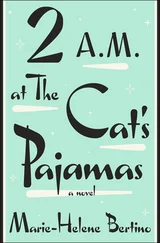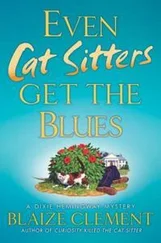Her voice thin and scratchy, she said, “Dixie, I hate to bother you, but could you pick up something for me?”
She said she wanted a hot water bottle. Another woman in her condo had one, and just the thought of it had made Cora nostalgic for the hot water bottles she’d had when she was young.
She said, “They make them smaller now, so they’re easier to handle. And there’s nothing like a hot water bottle when you have a stomachache or when your feet are cold. The woman got hers at a drugstore on Tamiami Trail.”
I said, “Do you have a stomachache?”
“It’s not bad.”
“Have you told your doctor?”
“It’s not anything to worry about, Dixie. People get stomachaches.”
I told her I’d be happy to bring her a couple of hot water bottles and hurried to get dressed so I could pick them up before I started my afternoon rounds.
Outside, the sun hid behind a scrim of ragged clouds, giving a trio of red-tailed hawks the look of dive bombers gone off course. The sun had moved away from dead center of the sky, making the light slant onto the ripples on the Gulf so their top edges glittered. A few sailboats made neat white triangles in the distance, and shore birds had come out of their siesta hideaways to stalk along the beach looking for snacks brought in with the frothy surf.
Michael was also on the beach, bare feet planted in the sand, legs braced like tree trunks while he looked at waves piling up on the shore. With a beach at our front door, we are generally considered privileged, but that only means we had ancestors smart enough or lucky enough to make choices that would one day be of tremendous value. Our grandfather bought our beachfront property for less than a thousand dollars. Now it’s worth more than Michael’s firefighting income and my pet-sitting income combined will ever total, but we still get to live here. If it’s true that we choose our families, we chose well.
I slipped off my Keds and walked out on the beach to stand beside him and dig my toes into the sand’s cool dampness.
I said, “What’s wrong?”
He didn’t pretend to be surprised that I knew something was wrong. We’ve been together a long time, and we know each other’s moods.
“Just a little concerned about Paco. He’s really stressed about something.”
“A job?”
His voice grew sharp. “Of course a job. What else? And no, I don’t know what job it is, and yes, it’s none of my business so I’m not asking. He wouldn’t tell me if I did.”
I nodded. People with family members who do undercover police work are always a little bit anxious, a little bit worried, and a little bit resentful because we can’t talk to them about it. They do their strong silent acts and we do our pretending-we’re-not-worried acts, and sometimes those different acts create great swaths of distance between us.
I said, “I’m just guessing, but I think the homicide in the Trillin house was more than just a local murder. An FBI agent questioned me and the Trillins this morning. Not a real FBI agent, a guy on loan from Interpol. So whoever the murdered woman was, it has attracted international attention. I think Paco’s involved in something to do with it.”
Michael looked hopeful. “Interpol?”
I knew what he was thinking, that a murder investigation that attracted FBI agents and Interpol officers wouldn’t be as dangerous for Paco as infiltrating a terrorist group or a local drug gang. It would be, of course, but I didn’t burst his bubble. I told him I was going to buy Cora some hot water bottles and left him looking less stressed.
As I drove under the trees lining the lane, parakeets made friendly swoops from their leafy shelters and swirled overhead. Parakeets are prima donnas, but they earn it.
I stopped at the end of our lane and waited for a break in traffic on Midnight Pass Road. As I turned, I caught sight of a white convertible half a mile away pulling out of a private lane like mine. It wasn’t something I paid attention to, just one of those subliminal details that drivers notice.
I zipped to a Walgreens on Tamiami Trail and bought two hot water bottles for Cora. They were cuter than I remembered hot water bottles being. Sort of snuggly, actually, so I bought two for myself. I thought they might come in handy some chilly night when I had cramps or a backache or cold feet. Now that it looked like I would be sleeping alone for the rest of my life, I figured my feet might need something to keep them warm.
With the hot water bottles in tow, I sped off around the marina and its moored boats toward Cora’s condo. Waiting at a red light, I spotted another white convertible way back in a line of cars behind me. It could have been a Jaguar like Briana’s, but it was too far back to tell for sure. Lots of convertibles in Sarasota, many of them white. Nothing to pay attention to, really, but I sort of did. As I left the marina behind and followed Tamiami Trail to Cora’s condo building, I noticed that the convertible hadn’t turned to go over the bridge to Longboat Key or St. Armands or Lido Key. When I turned onto the short lane to Cora’s condo, though, the convertible went straight ahead on Tamiami Trail, headed north. I felt a ridiculous relief. Nothing like being involved in a murder investigation to make a person start imagining being followed.
Every time I look up at the condo building where Cora lives, I imagine a bunch of architects coming back from an inspiring but drunken weekend in Venice before they designed it. Instead of old-world charm, the building is tarted up so it resembles a giant wedding cake decorated by kindergartners let loose with frosting cones. Cupolas perch in weird places, columns soar without any purpose, little fountains spurt water from the lips of cherubic gargoyles. I get off balance just looking at it.
I pulled up under the porte cochere, and a valet trotted out to take my Bronco away. Well, he was too old to trot, but he moved as fast as possible. With so many retirees in Sarasota, most of our valet parkers and supermarket bag-boys are over seventy. I suspect that most of them have been pushed to it by wives who grew weary of them constantly underfoot. The Sarasota joke is that wives committed to their husbands for life, but not for lunch.
The valet who parked my car was new, so we didn’t waste time chatting. I told him I wouldn’t be long, grabbed the bag of hot water bottles, and scooted through wide glass doors that slid apart when they felt me coming. I like that about posh places. Even the mechanical objects make you feel special. The lobby was crowded with youthful gray-haired people headed to golf courses or tennis courts or movie theaters. Old people are the only people who have the time to enjoy themselves. Gives me something to look forward to.
The concierge waved at me from her French provincial desk and picked up her phone to alert Cora that I was on my way up. I like that about posh places. Even if they know you couldn’t afford a down payment on the doormat, they treat you as respectfully as they treat the paying residents.
Most of the residents of Cora’s building are the epitome of good taste and old money, but a woman with bright red hair teased out to Jesus was waiting for the elevator. She wore high heels, tight leggings, and a drapey top made for adolescents. Cosmetic surgery had pulled out all her wrinkles and sculpted her nose thin as a baby’s finger bone, but when she turned to look at me, the eyes peering from under a fringe of red hair looked like the desperate eyes of an aging fox caught in a trap. I wondered if she’d had the surgeries hoping to snag a rich husband. Or maybe she’d had all the work solely for herself, just because she refused to look her age. Regardless of the reason, it didn’t take a makeover artist to know the woman had the same hunger for attention and love that makes unhappy teenagers draw heavy lines around their eyes and lips and trowel on thick makeup to cover every blemish. Not surprisingly, she reeked of cloying perfume.
Читать дальше












